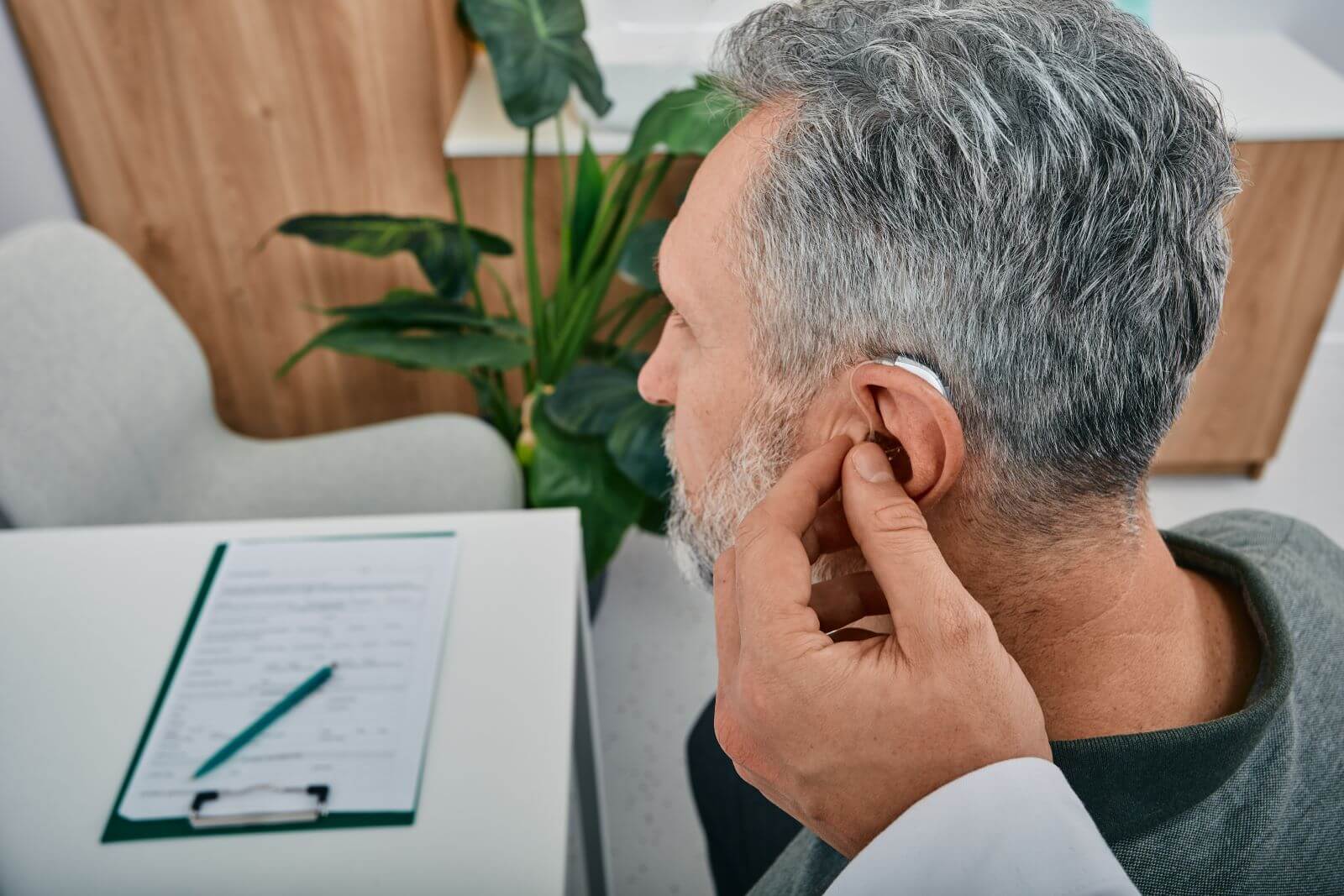An upcoming appointment for a hearing consultation is a major step towards treating hearing loss. You may be feeling nervous or anxious about this appointment and what comes next which is completely normal. A great way to prepare for this process is by developing a list of questions you can ask your hearing healthcare provider. This allows you to learn about your hearing health and to better track all of the information you’ll be receiving. Useful questions to think about include the following:
What type of hearing loss do I have?
There are different types of hearing loss and your hearing test will reveal the specifics of the hearing loss you are experiencing. There are different types of hearing loss:
- Conductive: conductive hearing loss occurs in the outer or middle portion of the ear. It occurs when soundwaves are obstructed, and they are unable to be fully absorbed or travel through the ear canal to reach the inner ear. This prevents soundwaves from being fully processed. A few factors can do this including: accumulated earwax, ear infections, foreign objects that get lodged in the ears (more common among children), bone growths etc.
- Sensorineural: sensorineural hearing loss occurs in the inner ear as a result of damage to the sensory cells that are in the cochlea. Several factors can cause this including: aging, loud noise exposure, existing medical conditions, head injuries, and inner ear disorders.
Sensorineural hearing loss is much more common, accounting for 90% of the hearing loss that people live with today. This type of hearing loss is permanent and treatable.
Is my hearing loss the same in both ears?
Hearing loss exists on a spectrum – from mild to profound. It is important to know where your hearing loss is on this spectrum so this is a useful question to ask. Your hearing loss can also be the same or different from one ear to the other. Another possibility is that you only have detectable hearing loss in one ear and none in the other. Understanding the specifics of your hearing loss will help you understand how you absorb and process speech as well as sound. It will also inform your treatment and will support you as you navigate daily life.
What is the best treatment option?
Fortunately, there are effective ways that hearing loss is treated. The most common treatment is hearing aids which are electronic devices that are designed to absorb, amplogy, and process speech as well as sound. This provides the ears and brain with significant support that alleviates symptoms and maximizes hearing capacity. Today’s hearing aids are more innovative than ever before. There is a wide range of options that provide different styles, colors, designs, and technologies.These technologies are designed to support hearing health in all environments, making hearing a seamless experience. Common features include digital noise reduction, wireless connectivity, tinnitus management, voice recognition capabilities and more.
Which hearing aid is best for me?
Your hearing healthcare provider will help you navigate your hearing aid options. They will recommend specific devices that are optimal for your hearing and lifestyle needs. A few factors are used to identify the best device for you, this includes: the type and degree of hearing loss you are experiencing, your aesthetic preferences, your interest in specific technologies, as well as lifestyle considerations. Lifestyle factors include your work and social life, climate you live in, activities you engage in etc. which help illuminate the types of environments you regularly navigate. This illuminates what your hearing aids need to be able to do in these contexts to best support your hearing health.
How are hearing aids maintained?
It is also important to know how to take care of your hearing aids which you will learn about during your hearing aid fitting appointment. Developing and practicing nightly maintenance is an important way to maintain the performance and longevity of your device. Be sure to ask your hurting healthcare provider how to best clean, store, and troubleshoot your hearing aids.
Treating hearing loss is life-changing. The evaluation process is non-invasive and painless. Be sure to maximize your time with your hearing healthcare provider by asking all of the questions you have!


